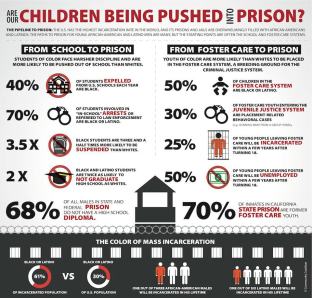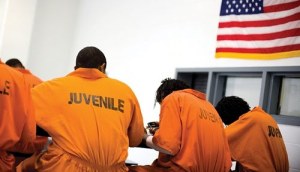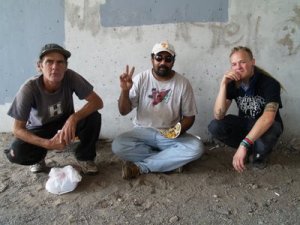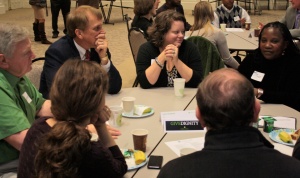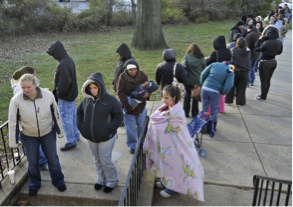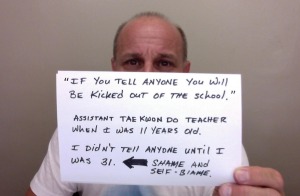“They won’t respond to us. We’ve reached out but they are not interested in reconciliation. They want the relationship to end.”
Melissa, Jonathan and Noella were shocked. This is not what they expected. After all, they had poured into the lives of the two students who had attended their Jobs for Life class.
They had begun the class last September with two students, refugees who had dropped out of school at the age of 13, living isolated in public housing on $270/month, and struggling with anger, bitterness, confidence and a lack of self-worth.
But the class gave them hope. One dreamed of becoming a makeup artist, the other wanted to get further training in computers. During the class, they literally could not read Psalm139 out loud without laughing because it was so foreign for them to grasp anyone would care for and value them.
They not only read about it, they experienced it firsthand. Melissa, Jonathan and Noella gave their lives to the students, opened doors for them in the community to pursue work opportunities, and were present when critical needs came up.
Graduation was a celebration with an elaborate feast. Friends came and celebrated with the students the awarding of their diplomas. Everyone was filled with joy and satisfaction.
Then…silence.
After graduation, the team’s efforts to connect with the students were met with rejection.
“We’d go to their home and knock on the door but they wouldn’t answer. We later found out they were angry with us.”
“What did we do wrong? Why in the world would they be angry?”
 On the front cover of the Jobs for Life class materials, it reads, “The Journey is the Reward.” But what if the journey leads to a Dead End?
On the front cover of the Jobs for Life class materials, it reads, “The Journey is the Reward.” But what if the journey leads to a Dead End?
In 2 Corinthians 5:14-16, the apostle Paul writes,
“For Christ’s love compels us, because we are convinced that one died for all, and therefore all died. And he died for all, that those who live should no longer live for themselves but for him who died for them and was raised again. So from now on we regard no one from a worldly point of view. Though we once regarded Christ in this way, we do so no longer.” 2 Corinthians 5:14-16
Having given themselves for years to those in need, Melissa, Jonathan and Noella’s trust in Christ compelled them to see the students no longer from a worldly point of view.
Melissa recounts,
“The problems students come with go so much deeper than economic need, and all told, the amount of time we spend with them is hardly sufficient to help them heal those wounds. We hope to begin to help them down that road, but we ought not be surprised if we catch less than friendly fire in the process. We realize their reaction comes out of their brokenness, that is to say, it comes ultimately out of a poverty we have in common with them. So, we are moving forward.”
They are now in Week 5 of their second Jobs for Life class with three new students. Thankfully, the journey didn’t lead to a Dead End after all.
David Spickard, President & CEO





